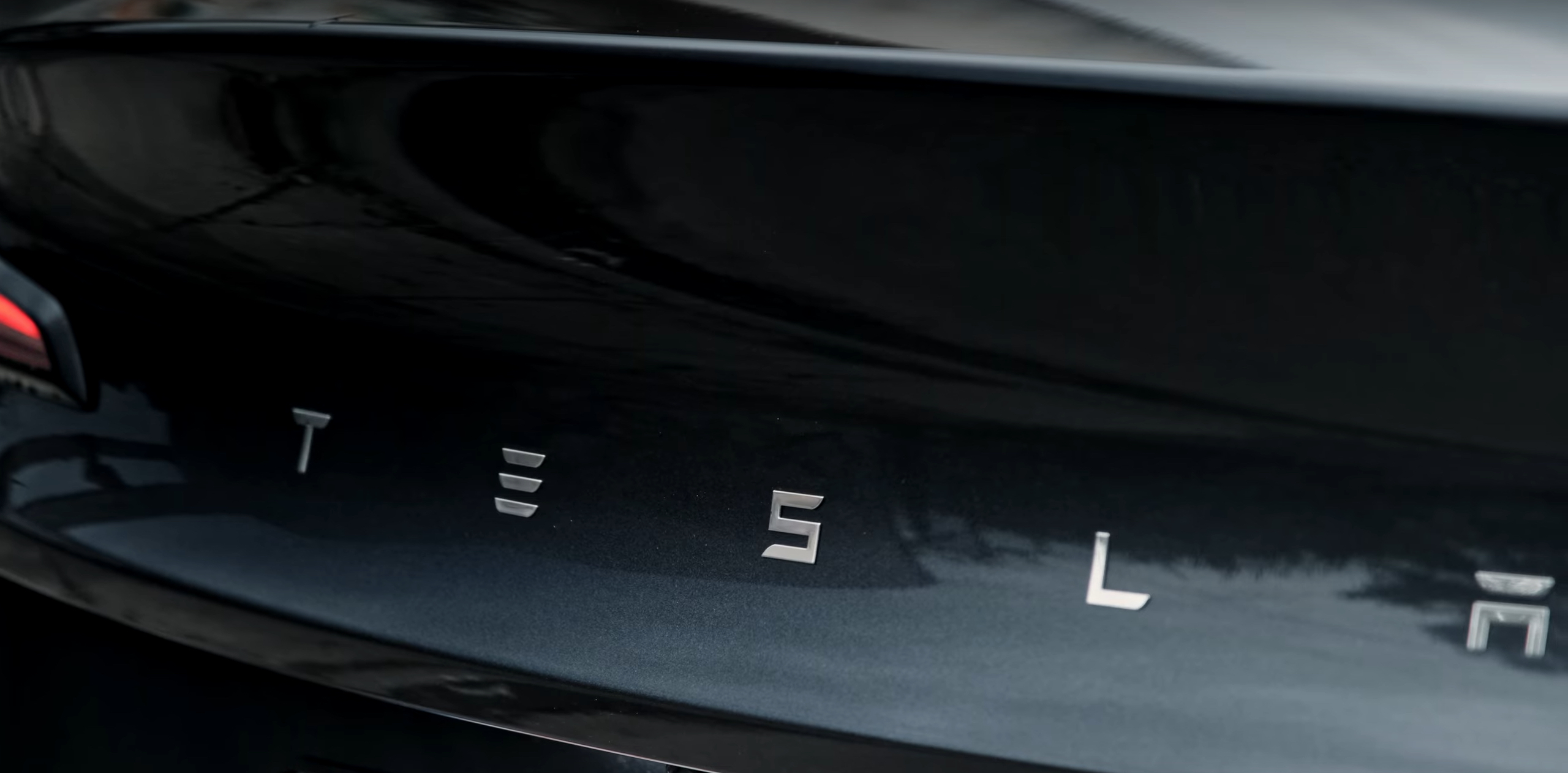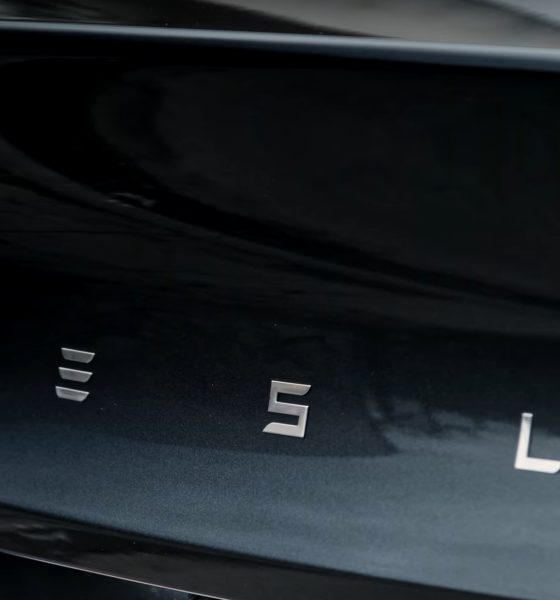Tesla has fallen behind a few points on a recently published owner satisfaction study, with others such as Rivian, Porsche, and Jaguar landing some of the index’s top spots.
J.D. Power published its 2024 U.S. Automotive Performance, Execution and Layout (APEAL) Study last week, which measured owner satisfaction with their vehicles after 90 days of ownership. The index looked at responses from 99,144 owners of 2024 model year vehicles, noting that satisfaction for mainstream brands has increased from not resonating well with consumers in past years.
Tesla had an overall score of 870 in the evaluation, dropping from its 878 score in the 2023 APEAL Study. Meanwhile, OEMs like Porsche, BMW, Dodge, Ram, and several others saw their scores jump year over year.
Tesla is no longer just a luxury brand, says major auto outlet
“Traditional manufacturers have listened to the Voice of the Customer,” notes J.D. Power Senior Director of Auto Benchmarking Frank Hanley. “They’re launching enhanced vehicles that are more in line with what customers want, including improved interior storage and higher quality materials, as well as ensuring features have ease of use.
“For BEVs, recent launches from traditional manufacturers have surpassed perennial leader Tesla when it comes to owners’ level of emotional attachment and excitement with their new vehicle,” Hanley said.
J.D. Power also notes that the study took place from July 2023 through May 2024, based on vehicles registered from April 2023 through February 2024. The APEAL is now in its 29th year with the 2024 publication, requesting that vehicle owners consider their satisfaction with 37 separate vehicle factors.
Infotainment systems were the lowest-ranking across all the categories evaluated with an average of 823, though the figure still marked a 5-point improvement from last year. Vehicles using Android Auto or Apple CarPlay generally ranked better, with averages of 832 and 840, respectively.
Despite Rivian and Tesla gaining high scores on the overall evaluation, these automakers and Polestar were not awarded, due to the brands not meeting study award criteria.
“Since J.D. Power is prohibited by Tesla, Polestar and Rivian from sampling owners in all states, we are not able to include their models with rank eligible models from other manufacturers.” explains Hanley.
J.D. Power’s top-ranked vehicle brands in the 2024 APEAL Study
Top 10 premium brands by owner satisfaction
- Rivian (900)*
- Porsche (891)
- Jaguar (886)
- Land Rover (882)
- BMW (881)
- Mercedes-Benz (876)
- Lincoln (874)
- Genesis (873)
- Tesla (870)*
premium segment average (870) - Cadillac (868)
Top 10 mass-market brands by owner satisfaction
- MINI (858)
- Ram (854)
- Kia (853)
- Hyundai (846)
- GMC (845)
- Volkswagen (844)
- Buick (842)
- Chevrolet (841)
mass-market segment average (838) - Dodge (837)
- Honda (836)
*These brands did not meet the criteria for the APEAL Study’s awards, meaning that they were not rank-eligible, according to J.D. Power.
Other recent assessments from J.D. Power
Last month, Tesla, Rivian, and Polestar were given low ranks in the J.D. Power Initial Quality Study for 2024, as many battery-electric vehicles (BEVs) were reportedly found to require more repairs, in part due to including newer technology.
In May, J.D. Power ranked Tesla’s mobile app the best among several automakers, just ahead of Mercedes, BMW, and Genesis. The firm also said earlier this year that Mercedes-Benz and Tesla have the best websites in the industry.
Updated 7/29/24: Added second quote from Frank Hanley detailing the exclusion of Tesla, Rivian, and Polestar from awards.
RELATED:
Tesla urged to rethink unorthodox vehicle controls by traffic safety expert
What are your thoughts? Let me know at zach@teslarati.com, find me on X at @zacharyvisconti, or send us tips at tips@teslarati.com.

News
Tesla FSD (Supervised) fleet passes 8.4 billion cumulative miles
Tesla’s Full Self-Driving (Supervised) system has now surpassed 8.4 billion cumulative miles.
The figure appears on Tesla’s official safety page, which tracks performance data for FSD (Supervised) and other safety technologies.
Tesla has long emphasized that large-scale real-world data is central to improving its neural network-based approach to autonomy. Each mile driven with FSD (Supervised) engaged contributes additional edge cases and scenario training for the system.
The milestone also brings Tesla closer to a benchmark previously outlined by CEO Elon Musk. Musk has stated that roughly 10 billion miles of training data may be needed to achieve safe unsupervised self-driving at scale, citing the “long tail” of rare but complex driving situations that must be learned through experience.
The growth curve of FSD Supervised’s cumulative miles over the past five years has been notable.
As noted in data shared by Tesla watcher Sawyer Merritt, annual FSD (Supervised) miles have increased from roughly 6 million in 2021 to 80 million in 2022, 670 million in 2023, 2.25 billion in 2024, and 4.25 billion in 2025. In just the first 50 days of 2026, Tesla owners logged another 1 billion miles.
At the current pace, the fleet is trending towards hitting about 10 billion FSD Supervised miles this year. The increase has been driven by Tesla’s growing vehicle fleet, periodic free trials, and expanding Robotaxi operations, among others.
With the fleet now past 8.4 billion cumulative miles, Tesla’s supervised system is approaching that threshold, even as regulatory approval for fully unsupervised deployment remains subject to further validation and oversight.

Tesla’s Full Self-Driving (Supervised) system has now surpassed 8.4 billion cumulative miles.
The figure appears on Tesla’s official safety page, which tracks performance data for FSD (Supervised) and other safety technologies.
Tesla has long emphasized that large-scale real-world data is central to improving its neural network-based approach to autonomy. Each mile driven with FSD (Supervised) engaged contributes additional edge cases and scenario training for the system.
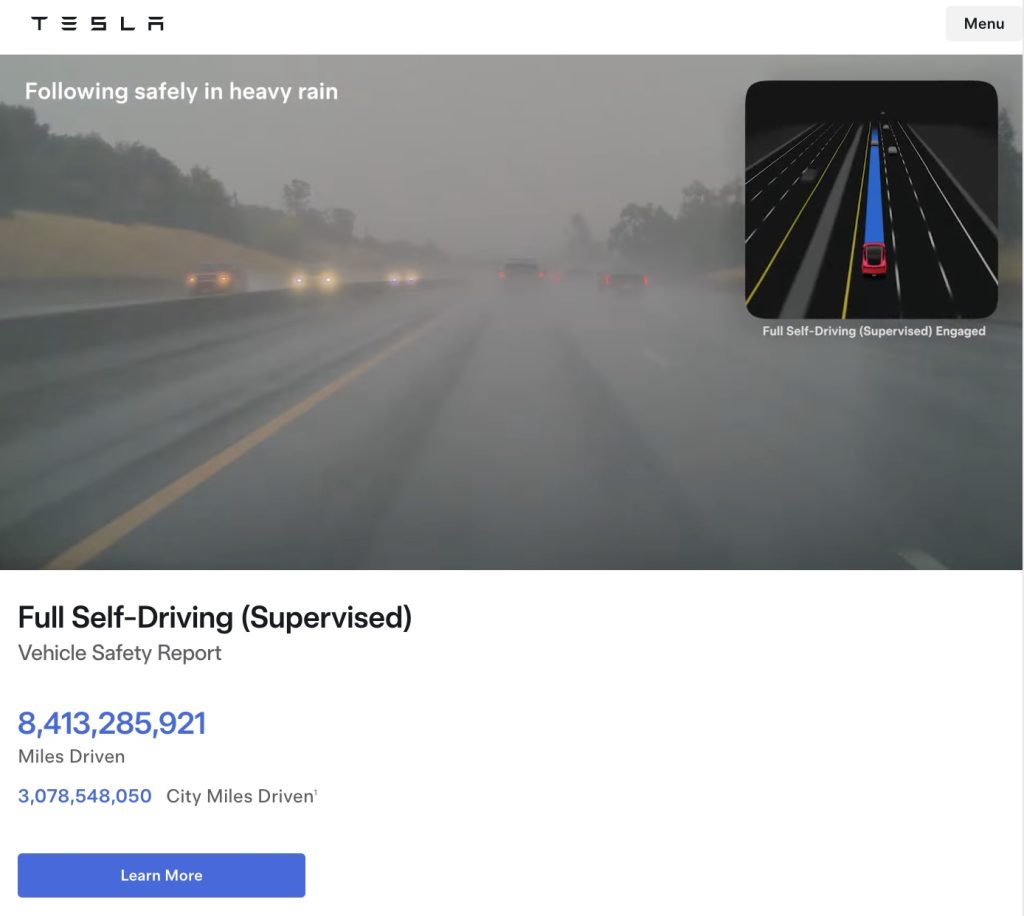
The milestone also brings Tesla closer to a benchmark previously outlined by CEO Elon Musk. Musk has stated that roughly 10 billion miles of training data may be needed to achieve safe unsupervised self-driving at scale, citing the “long tail” of rare but complex driving situations that must be learned through experience.
The growth curve of FSD Supervised’s cumulative miles over the past five years has been notable.
As noted in data shared by Tesla watcher Sawyer Merritt, annual FSD (Supervised) miles have increased from roughly 6 million in 2021 to 80 million in 2022, 670 million in 2023, 2.25 billion in 2024, and 4.25 billion in 2025. In just the first 50 days of 2026, Tesla owners logged another 1 billion miles.
At the current pace, the fleet is trending towards hitting about 10 billion FSD Supervised miles this year. The increase has been driven by Tesla’s growing vehicle fleet, periodic free trials, and expanding Robotaxi operations, among others.
With the fleet now past 8.4 billion cumulative miles, Tesla’s supervised system is approaching that threshold, even as regulatory approval for fully unsupervised deployment remains subject to further validation and oversight.
Elon Musk
Elon Musk fires back after Wikipedia co-founder claims neutrality and dubs Grokipedia “ridiculous”
Musk’s response to Wales’ comments, which were posted on social media platform X, was short and direct: “Famous last words.”
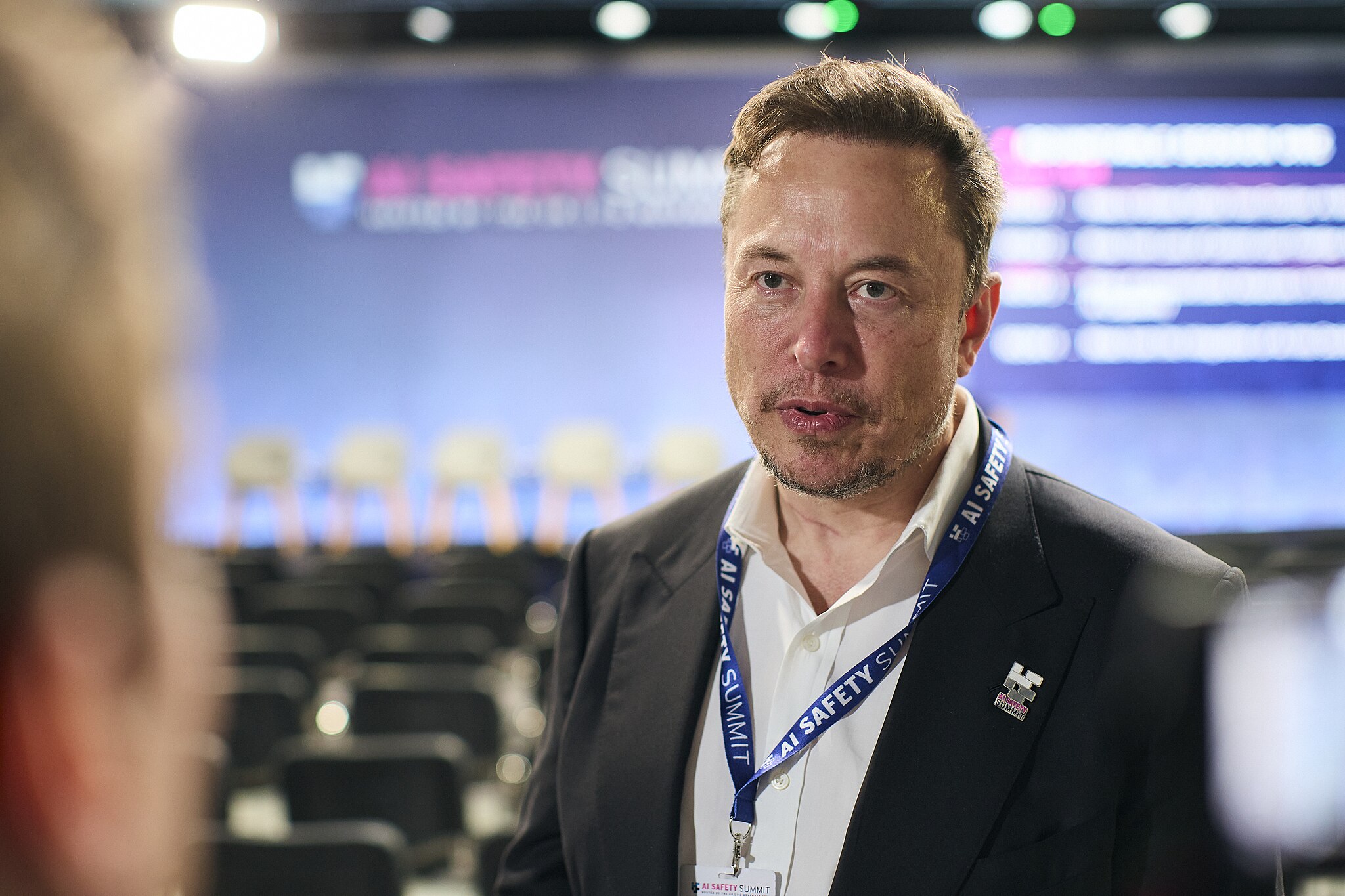
Elon Musk fired back at Wikipedia co-founder Jimmy Wales after the longtime online encyclopedia leader dismissed xAI’s new AI-powered alternative, Grokipedia, as a “ridiculous” idea that is bound to fail.
Musk’s response to Wales’ comments, which were posted on social media platform X, was short and direct: “Famous last words.”
Wales made the comments while answering questions about Wikipedia’s neutrality. According to Wales, Wikipedia prides itself on neutrality.
“One of our core values at Wikipedia is neutrality. A neutral point of view is non-negotiable. It’s in the community, unquestioned… The idea that we’ve become somehow ‘Wokepidea’ is just not true,” Wales said.
When asked about potential competition from Grokipedia, Wales downplayed the situation. “There is no competition. I don’t know if anyone uses Grokipedia. I think it is a ridiculous idea that will never work,” Wales wrote.
After Grokipedia went live, Larry Sanger, also a co-founder of Wikipedia, wrote on X that his initial impression of the AI-powered Wikipedia alternative was “very OK.”
“My initial impression, looking at my own article and poking around here and there, is that Grokipedia is very OK. The jury’s still out as to whether it’s actually better than Wikipedia. But at this point I would have to say ‘maybe!’” Sanger stated.
Musk responded to Sanger’s assessment by saying it was “accurate.” In a separate post, he added that even in its V0.1 form, Grokipedia was already better than Wikipedia.
During a past appearance on the Tucker Carlson Show, Sanger argued that Wikipedia has drifted from its original vision, citing concerns about how its “Reliable sources/Perennial sources” framework categorizes publications by perceived credibility. As per Sanger, Wikipedia’s “Reliable sources/Perennial sources” list leans heavily left, with conservative publications getting effectively blacklisted in favor of their more liberal counterparts.
As of writing, Grokipedia has reportedly surpassed 80% of English Wikipedia’s article count.
News
Tesla Sweden appeals after grid company refuses to restore existing Supercharger due to union strike
The charging site was previously functioning before it was temporarily disconnected in April last year for electrical safety reasons.
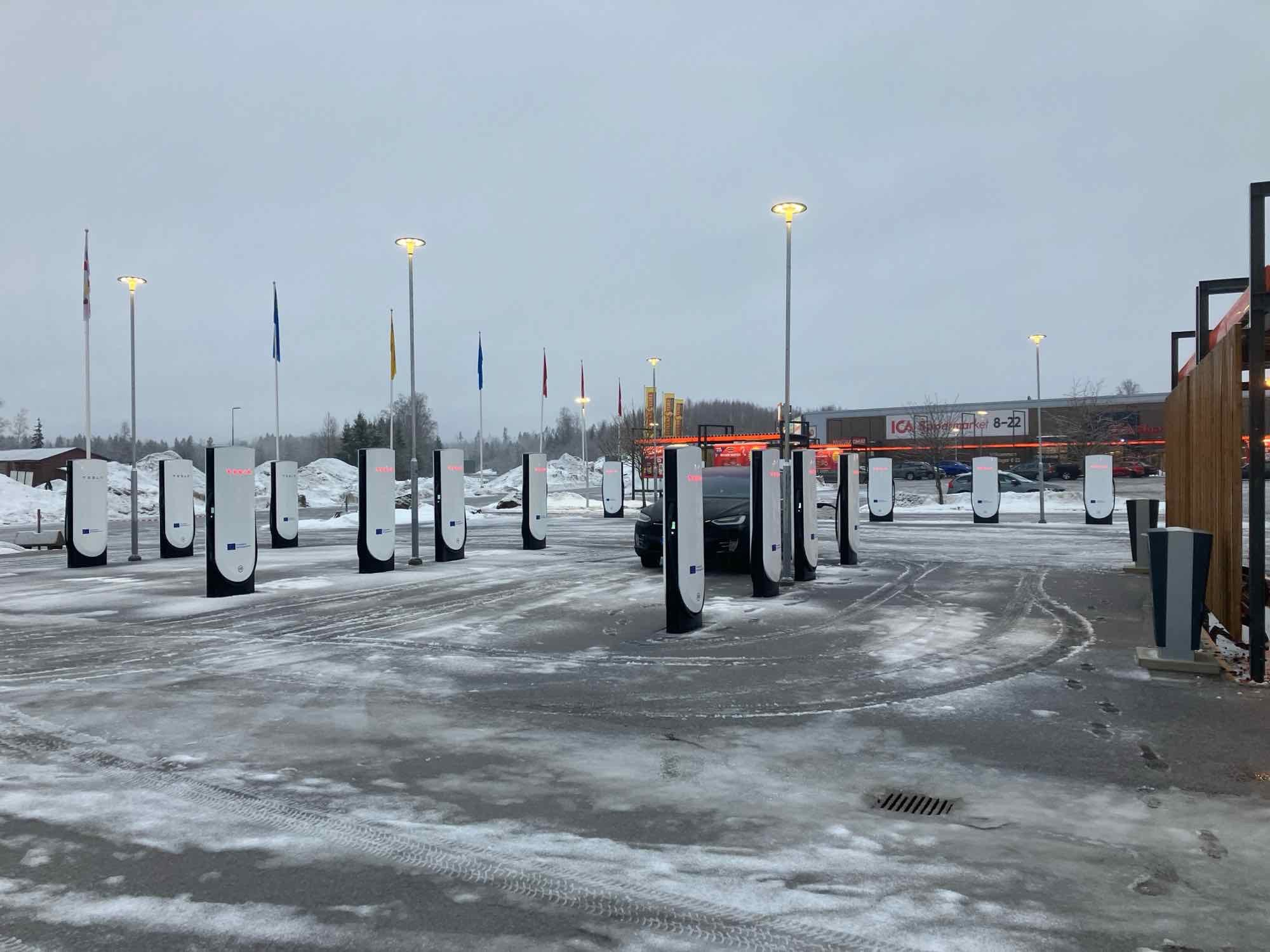
Tesla Sweden is seeking regulatory intervention after a Swedish power grid company refused to reconnect an already operational Supercharger station in Åre due to ongoing union sympathy actions.
The charging site was previously functioning before it was temporarily disconnected in April last year for electrical safety reasons. A temporary construction power cabinet supplying the station had fallen over, described by Tesla as occurring “under unclear circumstances.” The power was then cut at the request of Tesla’s installation contractor to allow safe repair work.
While the safety issue was resolved, the station has not been brought back online. Stefan Sedin, CEO of Jämtkraft elnät, told Dagens Arbete (DA) that power will not be restored to the existing Supercharger station as long as the electric vehicle maker’s union issues are ongoing.
“One of our installers noticed that the construction power had been backed up and was on the ground. We asked Tesla to fix the system, and their installation company in turn asked us to cut the power so that they could do the work safely.
“When everything was restored, the question arose: ‘Wait a minute, can we reconnect the station to the electricity grid? Or what does the notice actually say?’ We consulted with our employer organization, who were clear that as long as sympathy measures are in place, we cannot reconnect this facility,” Sedin said.
The union’s sympathy actions, which began in March 2024, apply to work involving “planning, preparation, new connections, grid expansion, service, maintenance and repairs” of Tesla’s charging infrastructure in Sweden.
Tesla Sweden has argued that reconnecting an existing facility is not equivalent to establishing a new grid connection. In a filing to the Swedish Energy Market Inspectorate, the company stated that reconnecting the installation “is therefore not covered by the sympathy measures and cannot therefore constitute a reason for not reconnecting the facility to the electricity grid.”
Sedin, for his part, noted that Tesla’s issue with the Supercharger is quite unique. And while Jämtkraft elnät itself has no issue with Tesla, its actions are based on the unions’ sympathy measures against the electric vehicle maker.
“This is absolutely the first time that I have been involved in matters relating to union conflicts or sympathy measures. That is why we have relied entirely on the assessment of our employer organization. This is not something that we have made any decisions about ourselves at all.
“It is not that Jämtkraft elnät has a conflict with Tesla, but our actions are based on these sympathy measures. Should it turn out that we have made an incorrect assessment, we will correct ourselves. It is no more difficult than that for us,” the executive said.
